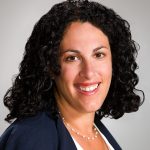Stoneleigh Fellow Jody Greenblatt is featured in the Philadelphia Inquirer about the Philadelphia School District summit on violence prevention.
About 500 Philadelphia School District principals gathered at Lincoln Financial Field on Monday for the first day of a three-day summit on school safety that is focusing on prevention rather than discipline and law enforcement.
“We can’t arrest our way to higher student achievement,” said incoming Superintendent William R. Hite Jr., who doesn’t officially start until Oct. 1 but came to town to take part in the summit. “We can’t suspend our way to higher student achievement. We can’t arrest or suspend our way to safer schools.
“These things are the result of climates, environments, and cultures that are established by the adults and between the adults and the young people that we serve.”
Over the three days, principals will hear about ways to nurture an environment of mutual respect between staff and students, and to recognize when students are acting out because they are bored or troubled and have been exposed to trauma. They will hear the most effective ways to discipline children who have been traumatized and ways to avoid as well.
“Sometimes that angry look, that stare, that inappropriate response, is a cry for help more so than anything else,” Hite told the principals and their assistants.
But he also emphasized that the focus on prevention at the summit does not mean that punishment and law enforcement will not be used when necessary.
“It should be a last resort, not a first action,” he said. Hite’s remarks left no doubt that creating safer schools and better learning environments for students would be a priority as the school year opens for the district’s 146,982 students on Sept. 7. The district is devoting three days of its two-week professional development training for principals to achieving safety by creating better learning environments.
Also Monday, the district announced that the Stoneleigh Foundation of Philadelphia is funding the two-year fellowship of Jody Greenblatt, who is charged with developing a school safety and climate strategy for the district. The foundation places fellows alongside and inside government to develop better strategies for helping children within the juvenile-justice and child-welfare systems or at risk of being in those systems.
Greenblatt, who started July 9, is working with the School District; city departments including behavioral health, police, and human services; and students and parents to find ways to improve safety. A Central High School graduate, Greenblatt formerly worked as a Family Court law clerk and assistant city solicitor, as well as a consultant for the Department of Public Welfare’s Office of Children, Youth, and Families.
“The goal is to have a safety strategy by the end of her first year,” said Cathy Weiss, executive director of the foundation. “The second year is used for monitoring the implementation to see if there is a need for refinement or adjustment.”
Weiss said the fellow was appointed at the request of Pedro Ramos, chairman of the School Reform Commission, who was looking for ways to improve school safety. Ramos also appointed a safety and engagement committee, headed by Commissioner Lorene Cary, that spent the last school year looking for ways to improve. Out of the committee came this week’s school safety summit.
For years, the School District has struggled with how to create a safe environment for its students and staff.
The seven-day Inquirer series “Assault on Learning” in the spring of 2011 found that violence in the district was widespread and underreported, and that violent acts occurred in virtually every corner of the district. The series showed that the district had 30,000 serious incidents over five years and that its main intervention program for helping students was little more than a paper shuffle.
The summit will feature several experts, including psychiatrist and Drexel University professor Sandra Bloom, past president of the International Society for Traumatic Stress Studies and a specialist in creating nonviolent school environments. Principals also will break up and discuss conditions in their own schools in small groups during the summit.
Principals will have the daunting task of improving the safety environment with fewer workers, as the district continues to cope with cuts forced by a budget crisis.
Cary acknowledged the extreme demand.
“Reward for a great job unfortunately is that the School Reform Commission will ask you to do that great job better next year for 25 percent less,” she told the group.
But the donations of space, refreshments, and inspiring presentations over the next three days are meant “partly to say to you, thank you from a grateful community. It will allow half a week of what we hope is refreshment, as well as delight, as well as challenge.”
Hite said he hoped the summit would help equip principals with better strategies for conflict resolution, youth leadership opportunities, peer-led mediation, and zero tolerance for violence, bullying, and harassment.
“What I’m talking about is zero tolerance as a preventative measure,” he said.
Hite also said in an impromptu news conference during the summit that he planned to create a department to focus on student services and “everything that is supportive to needs of students, communities, families, and individuals who want to partner with districts.”
“Students should be at the forefront of everything we do,” he said. “It’s really about getting to know each and every student in the school to determine what other issues may impact their ability to learn.”
This article was originally published in the Philadelphia Inquirer.
